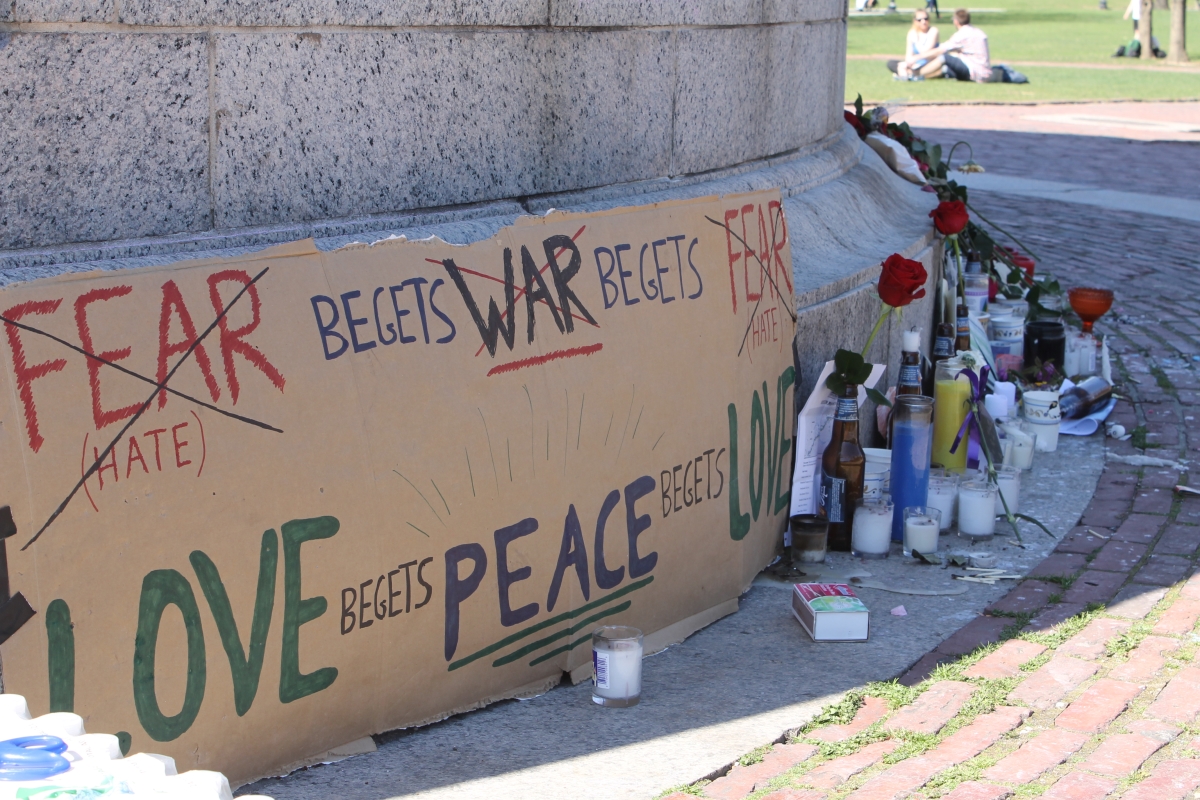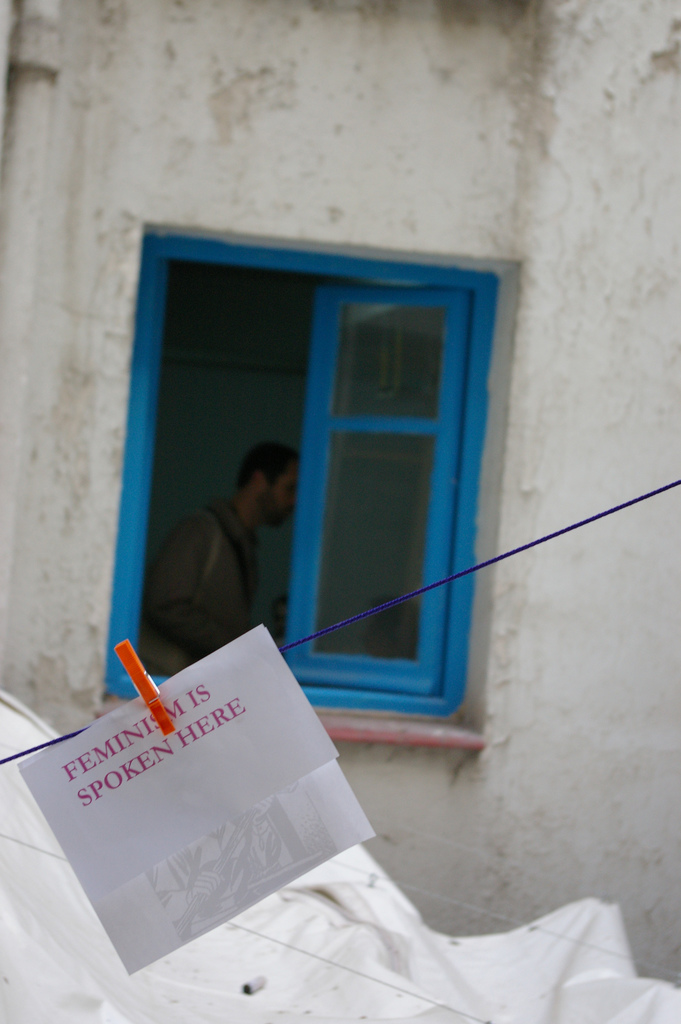In the wake of the Boston Marathon bombing, the relevance of Judith Butler’s A Precarious Life is a topic worth discussing. Prompted by the attacks of 9/11, Butler’s critique of the US response to fear and mourning is indeed contrary to the average American sentiment. While the official response to the attack on the World Trade Center was vehement censorship, militarization, and breaching of citizens’ rights in the name of security, Butler suggests something of an alternate world: “What would it mean, in the face of violence, to refuse to return it?” What would it mean, indeed, if the US took this attack as an opportunity to place itself within the context of a proper world view? What opportunities have we as American citizens missed out on because of our hasty resolution to seek revenge? These are the issues we will soon be facing again, and we must take Butler’s argument to heart if we wish to relinquish the reactionary nature of our post-mourning period.
Butler’s argument in terms of what we know as “acts of terrorism” must first be understood in terms of the process of grieving in general. Butler claims that, while we place different priorities on the lives of different people, there are certain factors that connect us all and this should make the lives of all people grievable. Everyone is capable of grief; thus, everyone is capable of loss. To have lost, one must have had. To have had, lost, and grieved, one must have wanted. This realization provides a context for individual lives as they relate to the larger political structure of the world: as Butler puts it, despite our best efforts, we are always “undone” by others. Our lives hinge on the actions of others, and others’ lives hinge on our actions. While this may sound like a simple conclusion, the post-9/11 condition of the US showed, and continues to show, that many citizens of the country have failed to realize this. Perhaps because of its geopolitical background – being bordered only by Canada and Mexico, only recently emerging from isolationism, and historically having few attacks conducted by foreign forces on its homeland – citizens of the US subconsciously take for granted that they are removed from the tumultuous nature of interstate violence. Rather than recognizing their dependence on the rest of the world, attempting to reconstruct their world view, and trying to understand the events leading up to this act of violence, citizens developed a sort of victim complex. On an individual level, this is understandable. Individual loss should not be overlooked, and grieving over the lives and sense of security lost should not be trivialized, but this grief is also not something that needs to be compensated for with immediate violence. And so we return to Butler’s question: what would happen if we did not return the violence that was given to us on 9/11? What is the proper response to an event like this?
Taking Butler’s argument into account, I don’t necessarily believe “violence” in terms of retaliating against those who attacked us is wrong in terms of preventing a future attack of the same nature. However, there is something to be desired in the way the US handled 9/11. Rights were breached in the name of patriotism and security. We blindly partake in systems reminiscent of totalitarianism in airports, constantly fearing that someone might repeat the attacks on the World Trade Center. We associate the act of “terrorism” almost exclusively with “Al Qaeda,” or in more extreme cases, “Middle Eastern” people in general. The initial reaction to the Boston Marathon bombing was that, being an act of terrorism, it must have been related to this group. We have developed an “us versus them” attitude, where we are invariably in the right and the death of our enemies is the only accepted solution to our grief.
The people of Boston took to the streets in celebration last Friday after the news hit that suspects had been detained. To many of them, the death and capture of these two men gave a satisfying conclusion to the tragedy of the marathon bombing. The average person’s interest in the topic extended only as far as “who did this, and how can we get revenge at their expense?” Once those answers were satisfied, few seemed to care about anything else. While the actions of the government and law enforcement were commendable, should we, as a collective group of citizens, have allowed solely this notion of revenge to bring closure to our grief? Ideally, we should have used this event to reflect in the same way we should have but we didn’t after 9/11. Chiefly, we should have asked, “Why and how did this happen?” Not just in terms of the preventative measures we could have taken – especially since asking the question in this context tends to lead to more restrictions on rights, such as the Patriot Act – but in the wider context of the political world. We also could have drawn comparisons to similar events that happen to the east; those events that we have traditionally felt so far removed from. How do the people of the Middle East react to loss when a suicide bomber decides to blow up a bus full of innocent victims? Can we relate to them? We may have found that we could. Could this relation lead to a greater understanding of each other? We may have found it did. We did not make a unified effort to do this, however, and those who did were silenced by those wielding the flag of patriotism.
While Butler’s argument may hinge on an ideal scenario, I believe her approach is correct. While some retaliation is understandable, the US needs to heavily reevaluate its relationship with the world and its reaction to attacks on its home soil. Rather than close the curtain on grief with revenge, we should have, and must in the future, close it with a greater understanding of ourselves and our place in the world.
Brendan Hill
Political Science ’14



